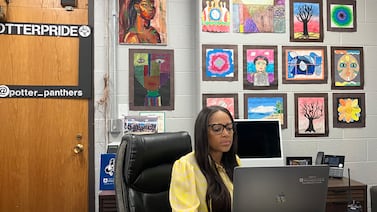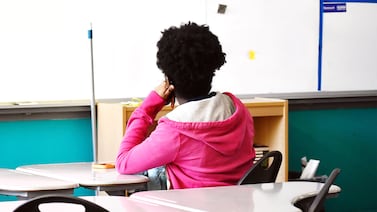Colorado charter schools will no longer be able to ask on their applications whether students require special education services.
The rule change brings Colorado into compliance with federal rules issued more than five years ago. It was approved unanimously by the State Board of Education Wednesday.
Charter schools will also have to make it clear on their websites that they don’t discriminate and train employees to accurately answer questions about admissions policies in ways that don’t deter the families of students with special needs, including those with disabilities and those learning English.
The change comes after Disability Law Colorado filed complaints with the U.S. Department of Education’s Office for Civil Rights against 29 charter schools that asked questions about disability status on their applications.
Most of the schools quickly updated their applications in response to the complaints. Administrators at many of the schools said they had no intent to discriminate, only to plan for student needs, but advocates said parents can be deterred by the questions.
While the application questions seemed to violate federal guidance issued in a 2016 memo, they were explicitly encouraged in Colorado’s charter rules, which told schools to determine “during the pre-enrollment admissions process” whether a school is an appropriate placement for students with special needs, including those with disabilities and those learning English.
Bill Kottenstette, director of the Schools of Choice Unit within the Colorado Department of Education, said at Wednesday’s meeting that the charter rule was adopted in 2012, prior to the adoption of the federal guidance.
Colorado charter schools enroll students with disabilities at a lower rate than the state average — and at a lower rate than charter schools in most other states, according to a study by the Center for Learner Equity.
The study was commissioned by the Colorado Department of Education, which convened a working group to suggest rules changes. That work was in progress when the complaints were filed.
The rule changes make it clear that conversations about what services students need should take place after students are admitted. The new rules ban charter schools from asking questions on their applications that would identify a student as belonging to demographic groups that are legally protected from discrimination, require the applications to be accessible for people with disabilities, and require schools to offer language assistance to parents with limited English.
During Wednesday’s meeting, Alex Medler, executive director of the Colorado Association of Charter School Authorizers, said recent research commissioned by the group found that parents complained repeatedly about a lack of information about how charter school admissions work for students with disabilities.
He praised the rule changes but said more is needed.
“We need to educate parents about their options and help both district and charter staff communicate it,” he said.
Chalkbeat Senior Reporter Ann Schimke contributed to this report.







